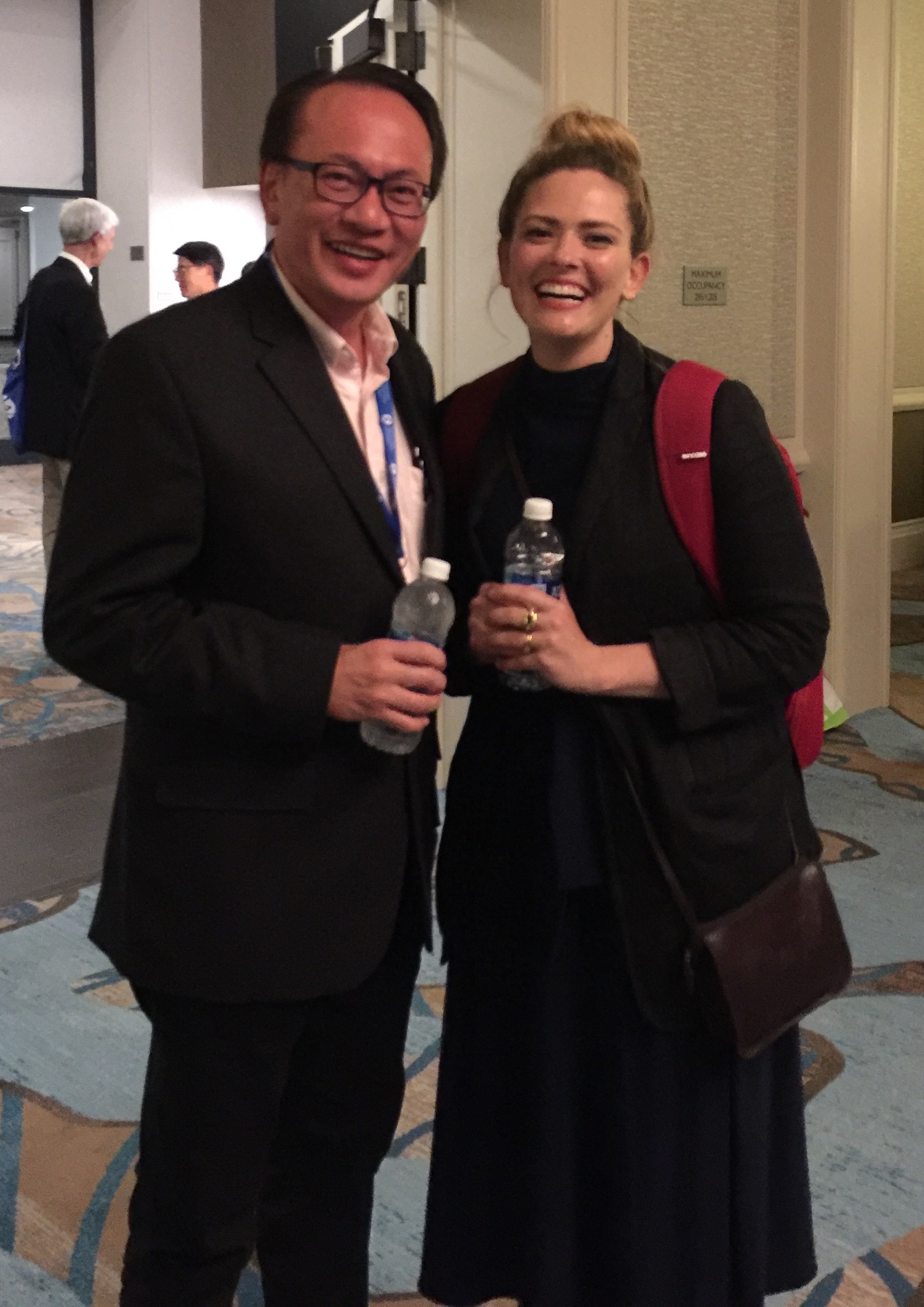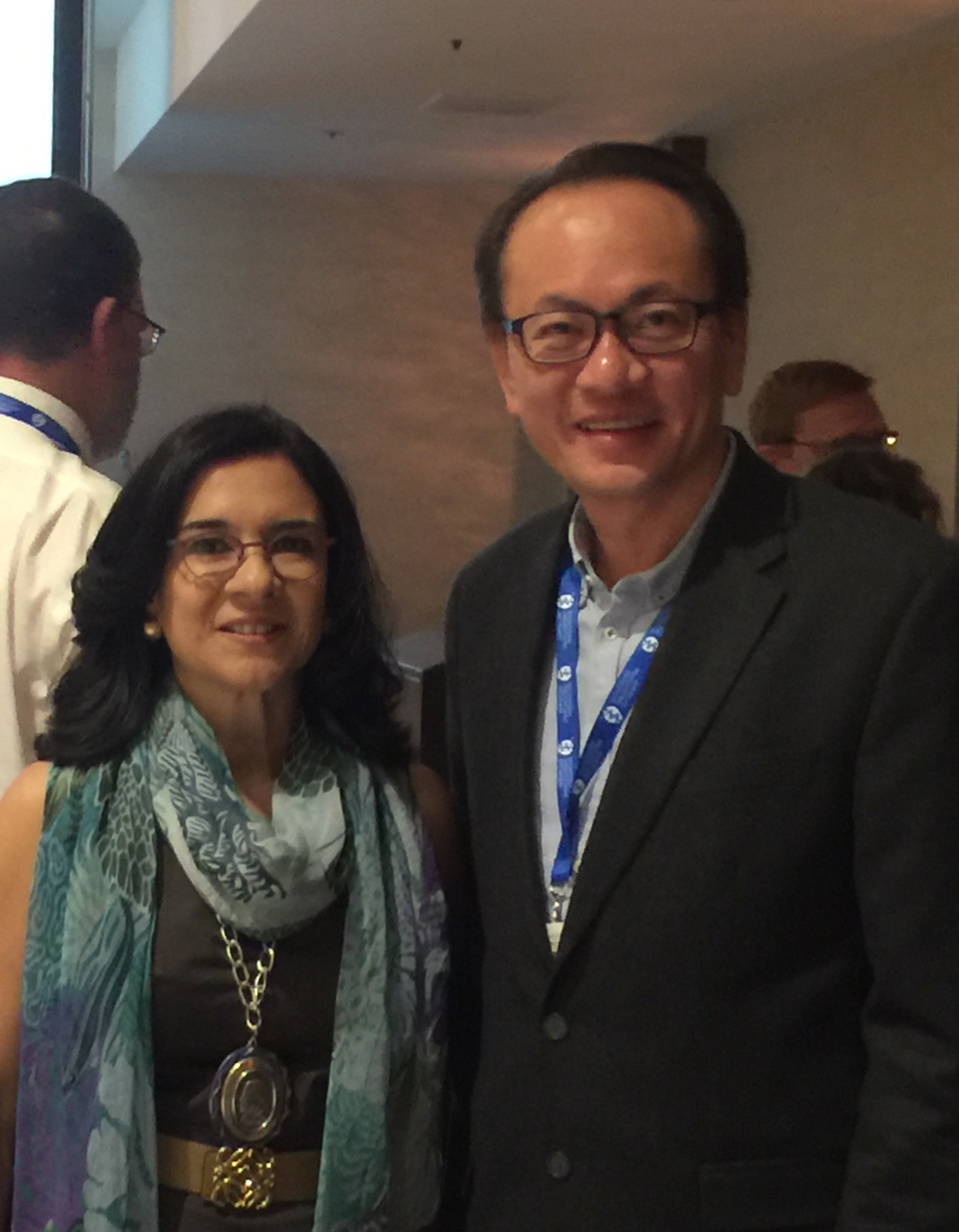I have always found the APA Annual Meeting to be of high standards and offered a variety of topics ranging from clinical, education, research and even technological advances in the delivery of healthcare services. The theme for this year meeting was ‘Prevention Through Partnerships’ which is timely as we are also looking at prevention and early detection of psychiatric conditions and developing a relationship based healthcare system in Singapore. Working together with different parties is crucial to the success of clinical programmes and clinicians need to be mindful of the integration of care of psychiatric and medical conditions. After the Opening Session by APA President, Prof Maria A Oquendo, there was a special lecture by Susannah Cahalan, a New York Times bestselling author of ‘Brain on Fire: My Month of Madness. She shared her experience as a psychiatric patient when she was misdiagnosed to suffer from Schizoaffective Disorder and Bipolar Disorder when she presented with paranoia and erratic behavior. Her actual diagnosis was Anti-NMDA Receptor Autoimmune Encephalitis. It was a powerful speech and it highlighted the need for treating psychiatrist to stay abreast of current medical knowledge and to have a high level of suspicion especially when encountering atypical clinical presentations.
At the conference, I have deliberately chosen a few topics of special interests especially with my current role in National Addictions Management Service in the Institute of Mental Health. The sessions on addictions and alcoholism which were co-organized by the National Institute on Alcohol Abuse and Alcoholism renewed my understanding of these disorders especially the sessions on alcohol screening and brief intervention for youths as well as the use of mobile phone- and web-based technology to enhance treatment and support recovery for patients with addiction problems. There were also presentations on the use of wearable alcohol biosensor which would provide feedback to the wearer to keep him/her honest and motivated. Other sessions that interested me included that of promoting physician competence across the lifespan by identifying the learning gaps and through a targeted lifelong learning and continuous practice assessment and improvement method. As clinicians we need to provide the best clinical care to our patients – not just knowing recent findings from the literature but to implement good practices from evidence-based medicine. Another topic that I found useful was on attaining leadership and mentorship roles while being a clinician – readiness to serve, deep determination, ‘recalcitrant’ persistence, commitment to quality, openness to feedback, devotion to developing people and unfailing honesty.
Other clinical sessions that I have attended included that on the role of psychiatrists on end of life option (e.g. physician assisted suicides versus euthanasia), assessment of malingering using tools like Rey I, Rey II, B test, coin-in the-hand and Miller forensic assessment of symptoms test (M-FAST) and antidepressant treatment for pregnant women etc. Beyond the clinical updates, I was honored to be invited to the Presidential Reception hosted by Prof Maria A Oquendo. It was a memorable night as I made new friends and also re-established the relationship with the existing ones.

With Ms Susannah Cahalan, author of ‘Brain on Fire: My Month of Madness’

With Prof Maria Oquendo, President of American Psychiatric Association’
